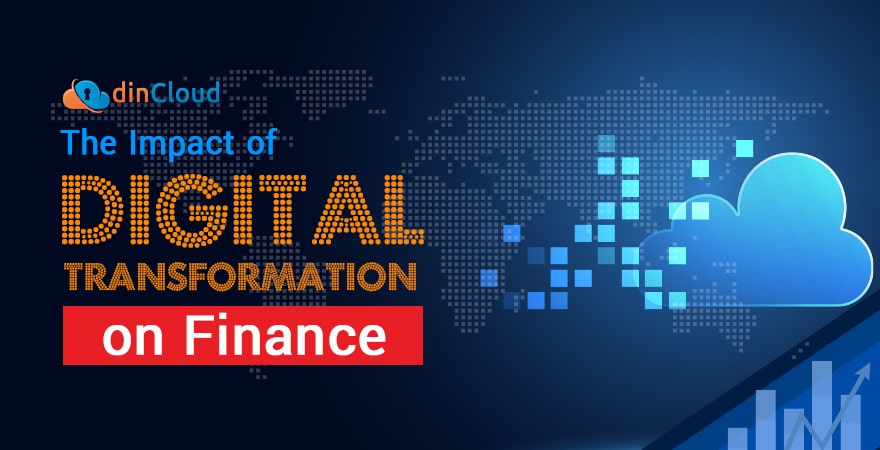Now, the whole world revolves around Finance. It is perhaps one of the most crucial functional areas of any organization. When we talk of digital transformation as a whole, it is impossible to ignore its profound impact on an organization’s finance.

In this post, we will present a future outlook for the financial division of an organization, albeit in a generic context.
Contactless Transactions
This is one sub-function of the finance department that has gained paramount importance in the aftermath of Covid-19. Now, customers and regulators alike demand the provisioning of fast, secure and easy contactless transaction channels.
Digital transformation will have to take the lead in this area, as each organization will need to develop a fail-safe digital “corridor” to complete this very sensitive step of any Business to Business (B2B) or Business to Consumer (B2C) transaction.
Related: How Has Covid-19 Impacted Digital Transformation?
Shift to Real Time Finance
With digital transformation in full swing, we should see a shift to real time finance. To better understand this trend, you should correlate this concept with the current periodic reporting and analysis of financial information.
By adopting digitalization in finance, organizations will no longer be depending on the close of a month, quarter, half year or annual period. Instead, there will be automated tools that will keep consolidating financial information for instant reporting to the management.
Evolution of Financial Information
Right now, most of the financial information at the management level is little more than complex numbers, with no meaning in themselves. By digitalizing the area of Finance, the financial information of organizations will assume a much more visual and graphical form.
The ability to extract real-time financial information of an organization at any given point in time, coupled with its easy to comprehend visual form, will give the finance division of organizations a much elevated profile and weight within the entity.
Related: How to Navigate Digital Transformation Challenges in 2021?
Automation, Financial Robots and Algorithms
One of the major advantages of taking Finance digital will be ease of implementing automation, financial bots and algorithms. Automation will take the burden of repetitive financial tasks off the Chief Financial Officers (CFO) and their teams.
Decision capable financial algorithms will be the next step in this entire digital finance transformation. This will take the element of human error out of the equation, while still requiring human intervention only on a need basis or under exceptional conditions.
Financial bots will be monitoring all key Finance related Key Performance Indicators (KPI) constantly and in real-time. This will enable CFOs to take corrective / remedial measures much more proactively, thus enhancing business value and minimizing risks.
Related: Going into 2021, Why Should Digital Transformation be a Top Priority?
Integration of ERPs and Micro-Services
The finance modules of most ERP software allowed little to no room for customization. This in turn limited the effective use of financial information that was being generated by such Enterprise Resource Planning (ERP) software, as needs used to vary a lot by entity.
Now, we should expect the proliferation of finance related micro-services that will be capable of integration with the currently deployed ERP software. This in turn will reduce the complexity and cost elements, while improving functionality at the same time.
Related: 3 Reasons to Embrace Digital Transformation
Conclusion
As Finance is a pivotal element of any organization’s long term viability, it will have to be an integral part of any digital transformation initiative to yield the desired outcomes. After all, everything revolves around finance now.
Contact dinCloud for Cloud Hosted Virtual Desktops that have been purpose built to handle your organization’s finance function effectively.


